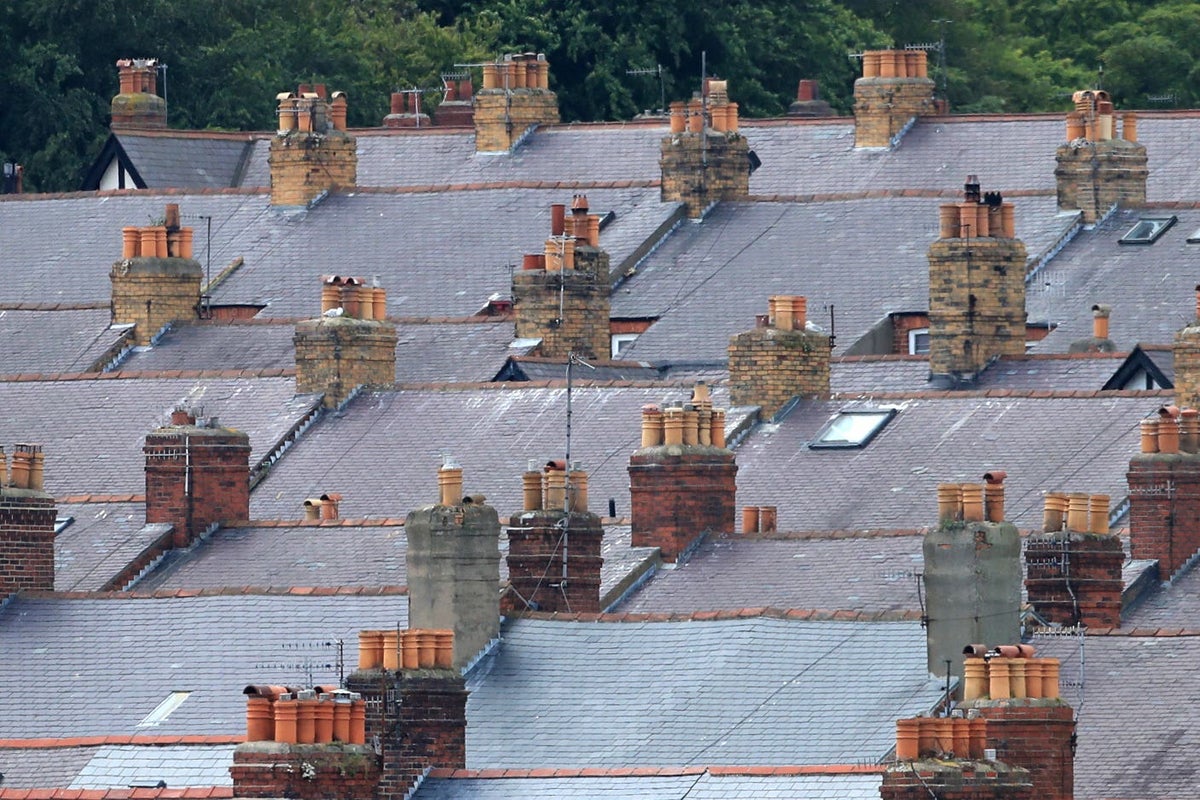
The exempt housing system in England is a “complete mess” that lets down vulnerable residents and rips off taxpayers, a damning report from MPs has concluded.
Vulnerable people in need of support are being exploited, while providers make excessive profits by capitalising on loopholes, the cross-party Levelling Up, Housing and Communities (LUHC) Committee said.
It urged the Government to set compulsory minimum national standards and keep track of providers through a register, amid increasing concerns around quality and lack of regulation.
The Government said profit at the expense of vulnerable people is “unacceptable” and said it is bringing forward measures to stop such landlords.
The current system of exempt accommodation is a complete mess which lets down residents and local communities and which rips off the taxpayer— Clive Betts, LUHC Committee chairman
The current system of exempt accommodation is a complete mess which lets down residents and local communities and which rips off the taxpayer
Exempt accommodation is a type of supported housing for residents with specific needs that is exempt from local caps on housing benefit.
Residents include refugees, care leavers, people with disabilities, people who were previously homeless, those who have experienced addictions, recent prison leavers and victims of crime such as domestic abuse or modern slavery.
Rent is set by the provider and paid for by the resident’s housing benefit, while support is funded separately.
Members of the committee, who visited Birmingham to hear stories first-hand, were told of residents being raped or sexually harassed by their landlords under threat of eviction, or forced to undertake renovations for a pittance.
They also heard of female survivors of domestic abuse living in mixed-sex accommodation or alongside perpetrators, or recovering drug addicts living with drug dealers.
One resident, whose testimony was quoted in the committee’s report, said:“It was a large place managed by what could possibly be called gangsters, who would scare tenants at various times for various reasons, often for no reason.
“They were sometimes drunk and they were untrained for their roles. They were abusive, intimidating and preyed on the vulnerable.
“They would collect money with intimidating tactics, only letting people out on certain evenings, ie the days the tenants had received payments.”
One community group where there is a high concentration of exempt accommodation said neighbours become “overburdened with appeals for help”, such as requests for food, money and use of phones.
They get tired of calling ambulances for people collapsed on the pavement and worry about the safety of their children playing outside.
Committee chairman Clive Betts said there are many good providers but in the worse cases vulnerable residents are left with “little more than a loaf of bread left on the table or a support worker shouting at the bottom of the stairs” to check on them.
He said: “The current system of exempt accommodation is a complete mess which lets down residents and local communities and which rips off the taxpayer.
“The Government must act now to help councils to tackle this situation and ensure people get the quality housing and support services they need to move on with their lives.”
This committee report lays bare the serious failings in the exempt accommodation sector that have allowed people to be exposed to some of the worst examples of exploitation and abuse that we have seen— Matt Downie, Crisis
He added that residents are being failed “while unscrupulous providers make excess profits” by taking advantage of loopholes.
“This gold-rush is all paid for by taxpayers through housing benefit,” he said.
“This must change and it is crucial the Government brings forward reform on a range of areas including on standards, regulation and oversight, and on funding to put this right.
“In our changes we are not asking for any additional expenditure; we are calling on the Government to get a grip on the vast sums it is paying out without effective oversight”.
The Committee also said it is not clear of the scale of the problems due to a lack of data.
Matt Downie, Crisis chief executive, said: “This committee report lays bare the serious failings in the exempt accommodation sector that have allowed people to be exposed to some of the worst examples of exploitation and abuse that we have seen.
“From being forced to live in damp, mould-infested rooms to being harassed, held at knife-point by landlords, and in the worst incidents sexually assaulted, our clients have bravely spoken out time and time again about the need for immediate action.”
Birmingham City Council said it is requesting an independent inquiry into the growth of the sector in Birmingham, vowing not to become “complacent” locally.
It said any legislation must give councils power to control growth, close down bad providers and give them enough funding to support vulnerable tenants.
Sharon Thompson, cabinet member for housing and homelessness, said: “Thanks to the tireless work of so many housing groups, tenant organisations and local forums in Birmingham, the government has finally woken up to the scale of the problem and based on this report they must now commit parliamentary time to bringing in new legislation or backing Bob Blackman’s Supported Housing Bill.”
The Conservative MP’s private member’s bill, to tighten up regulation and oversight of exempt accommodation, is due to receive its second reading on November 18.
A Department for Levelling Up, Housing and Communities spokesman said: “It is unacceptable that unscrupulous landlords are trying to profit at the expense of vulnerable people and we are bringing forward a package of measures to stop them in their tracks.
“This is backed by a £20 million investment to drive up quality in the supported housing sector and protect the most vulnerable in society.”







